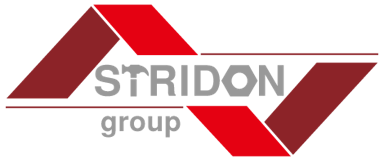Bosch
History
The company Bosch began operations on November 15, 1886, as a workshop for precision mechanics and electrical engineering in West Stuttgart. Just a year later, Bosch developed a low-voltage magneto for gas engines, marking the start of its innovation journey in the automotive industry. From 1897, Bosch started installing magneto ignition systems in motor vehicles, becoming a leading supplier of ignition systems. In 1902, chief engineer Gottlob Honold introduced the high-voltage magneto ignition system with a spark plug — a crucial invention for the advancement of the automotive sector. In 1901, Bosch opened its first manufacturing plant in Stuttgart. The company rapidly expanded: by 1906, it had produced its 100,000th magneto and introduced the eight-hour workday. In 1910, a new plant was opened in Feuerbach, where the famous Bosch light, a generator and headlight system — entered production in 1914 after its 1913 debut. The growing use of motor vehicles after 1900 led to a rapid increase in demand. Bosch grew from 45 employees in 1901 to over 1,000 by 1908. Global expansion began in 1898 with an office in London, followed by Paris, Vienna, and Budapest, and soon extended across all continents. In the 1920s, Bosch expanded its product line with electric horns (1921), windshield wipers (1926), and turn signals (1927). That same year, it introduced diesel fuel injection systems. In 1932, as part of its diversification strategy, Bosch acquired the gas equipment sector from Junkers & Co. That year, it also launched its first electric drill and introduced its first car radio. In 1933, Bosch unveiled the first electric household refrigerator. In the 2000s, Bosch rolled out innovations such as electro-hydraulic brakes, piezo injection for diesel engines, digital car radios with CD players, and the lithium-ion cordless screwdriver (2003). The company received the German Future Prize from the German President in both 2005 and 2008. In 2021, Bosch made its largest single investment with a $1.2 billion semiconductor factory.

Technologies and innovations
Bosch technologies are synonymous with innovation. In 2009, the company allocated €3.6 billion to research and development, filing around 3,900 patents annually. Bosch focuses on improving energy efficiency, utilizing renewable energy sources, and exploring fields such as biomedical technology. Its subsidiary, Bosch Healthcare Solutions GmbH, offers medical devices and services. In 2020, the company launched a rapid COVID-19 test. Between 2022 and 2026, Bosch is investing €3 billion in chip production and R&D, with an emphasis on 40 and 200-nanometer chips for automotive applications. This further solidifies its leadership in automotive and electronic industries.
Product range
Bosch products span multiple industries. In the automotive sector, Bosch supplies fuel injection systems, brake systems, and advanced car electronics. In the consumer goods sector, it is renowned for its Bosch power tools, home appliances, and electric bicycle motors. In industrial technology, Bosch develops automation and packaging systems. In the energy and building technology sector, it offers heating systems, hot water solutions, security systems, and communication devices. The company also manufactures sensors, smart home devices, and medical instruments. Bosch is actively involved in software solutions, especially for autonomous driving and smart vehicles. By revenue, Bosch is the world’s leading supplier of automotive components.
Global presence
The Bosch Group operates over 468 subsidiaries and regional offices in more than 60 countries. Its manufacturing, engineering, and sales activities span the globe. Over 90,000 researchers and engineers work across 125 locations worldwide — positioning Bosch as one of today’s most innovative global brands.
